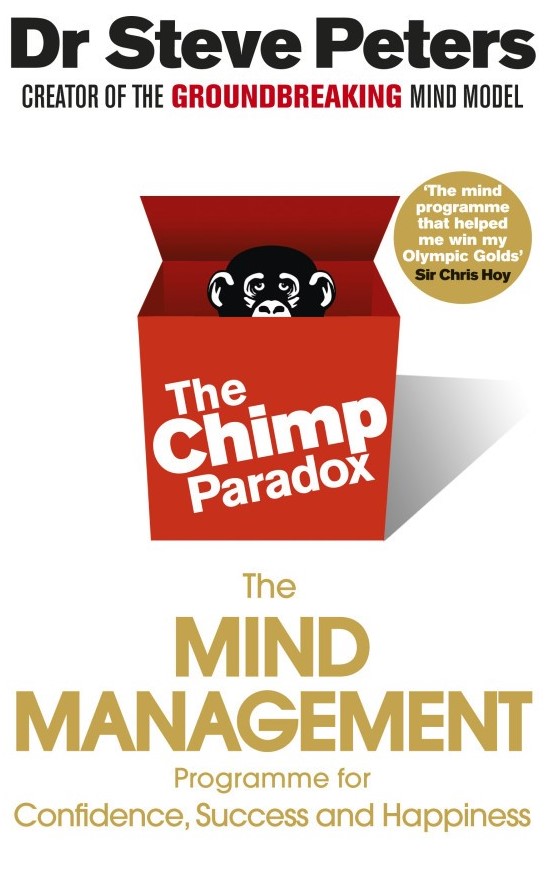 |
Peters is a Consultant Psychiatrist, who is a Dean for undergraduate students at Sheffield University Medical School. He is also credited with helping athletes achieve success and has worked with: Sky Pro Cycling team, Olympic Gold medal winners and Liverpool Football Club.
The Chimp Paradox is not a new theory. Peters has taken an old theory and repackaged it, making it more accessible to more people. The theory goes that within our mind we have three aspects: the computer, the chimp and the human. The computer stores autopilots (useful beliefs or behaviours), gremlins (destructive beliefs or behaviours that are removable/changeable in the computer) and goblins (destructive beliefs or behaviours that are difficult to remove/change). |
All of these are based on past experiences. The computer also holds the values and beliefs that we live our lives by.
The chimp is the emotional part of your brain and is wired for survival and procreation. Whenever the chimp perceives a threat he will decide to fight, flight or freeze. The chimp can hijack you and is responsible for often irrational or destructive behaviours.
The human on the other hand is the logical and rational part of you. The problem comes that the chimp responds 5 times quicker than the human. So it is up to the human to learn to manage the chimp and to change the programming of the computer, so that all parts of the brain work towards the same goals without conflict.
Here’s a video that explains the concept:
Anyone struggling with emotions, emotional intensity or regulation will find The Chimp Paradox useful. The book covers improving: day to day functioning, motivation, health, success and happiness.
Overall Peters should be commended for making the psychological theory more accessible. The Chimp Paradox is simple to understand and includes plenty of real life examples. The only downside to this is that Peters sometimes over explains the obvious.
If you’re into self-improvement, self-help or other similar topics, then you’ll enjoy The Chimp Paradox.
Review soon,
Antony






